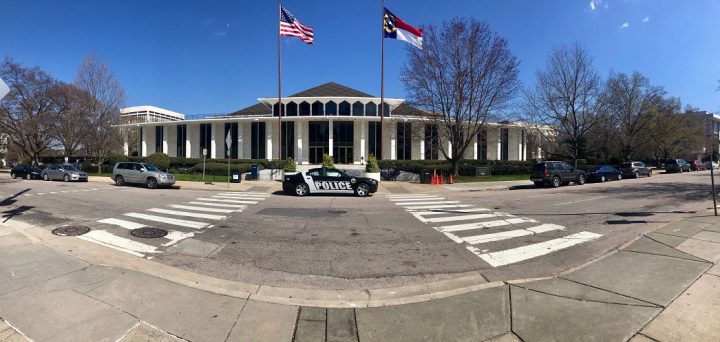
State House and Senate leaders signed off on a new budget plan last week, kicking off the next phase in negotiations with Gov. Roy Cooper and the potential for an agreement that could end years of budget standoffs.
House Speaker Tim Moore, R-Cleveland, and Senate President Pro Tem Phil Berger, R-Rockingham, announced that House and Senate conferees reached a deal Wednesday morning. They said they had previewed portions of the plan with Cooper’s staff and hope to avoid another protracted budget fight.
Supporter Spotlight
This year’s budget process is running months behind schedule, but the downside to that is overshadowed by the prospects of a deal that would avoid the kind of bitter veto and override battles of the last three years.
State government has not operated under a formal two-year budget since 2018, the last year both chamber of the legislature were controlled by Republican supermajorities.
In 2019 and 2020, a budget standoff between Cooper and the legislature led to a series of minibudgets to fund agencies and proposals where the two sides agreed. Other parts of the government have operated under an automatic budget law that funds departments and agencies at the prior year levels until a new budget is passed.
The reduced spending, a massive influx of federal COVID-19 and disaster relief, and a larger than expected jump in revenues have given lawmakers plenty to work with on a spending package.
The legislature’s Fiscal Research Division’s end-of-tax-year analysis this summer estimated that the state would collect $6.5 billion more than originally estimated.
Supporter Spotlight
But the rosy revenue scenario hasn’t made drafting a budget an easier task.
This year, disagreements early on between the House and Senate, including on a target spending level, slowed the budget rollout.
The Senate passed its plan on June 28 with a 32-17 vote. The House put its plan to a vote on Aug. 12 and passed it 72-41. While both margins are enough to override a governor’s veto, in practice, Democrats have closed ranks in the past to back Cooper.

Rep. Pat McElraft, R-Carteret, said Friday she expects the plan to go to the governor this week and expects the process to take roughly two weeks.
“I would guess we should have something to vote on by the middle of October or so,” she said.
Cooper press secretary Jordan Monaghan confirmed that top level talks have started.
“The Governor and legislative leaders and staff are beginning budget negotiations and that will continue into next week,” Monaghan said Friday in an email response to Coastal Review.
Consensus on coastal concerns
Much of this year’s budget discussions have taken place behind the scenes, in particular the latest round of talks in the House and Senate conference committee that crafted the final legislative product.
Because of that, what’s been worked out in areas where the two chambers diverged won’t be known until the final product is unveiled, but what’s been in agreement all along, especially things also in Cooper’s plan, are likely to be in the end product.
Although details vary between the proposals, the list includes numerous coastal and environmental policy and funding provisions.
Topping the priorities are flood mitigation and resiliency projects, personnel for emerging contaminant research and tracking at the Department of Environmental Quality, and the large increases in conservation, water quality and parks funding.
The House is proposing $80 million in the current fiscal year for the Land and Water Fund and $70 million for the Parks and Recreation Trust Fund, or PARTF. The Senate budget puts $73 million toward the Land and Water Fund and $53 million into PARTF.
Support for both conservation funds bottomed out in 2013 and have been on a slow, steady climb since. The proposed funding levels would restore both to levels prior to the Great Recession that began in December 2007.
The House, Senate and governor’s plans all include additional funds for shellfish programs including leasing, additional personnel for the Division of Marine Fisheries, and the long-sought replacement of the aging West Bay, the vessel the division uses for cultch planting.
Special provisions in both House and Senate budgets include continued studies on per- and poly-fluoroalkyl substances, also known as PFAS, by the North Carolina Policy Collaboratory at University of North Carolina Chapel Hill, along with a new, mandatory statewide online registry of all firefighting foam containing PFAS and related substances.
Both chambers’ budgets also include provisions setting up a voluntary commercial fishing license buyback program to reduce underutilized licenses and both include a continued shellfish leasing moratorium in sections of New Hanover and Carteret counties. The Senate’s version extends the moratorium indefinitely. The House would end it in 2026.







